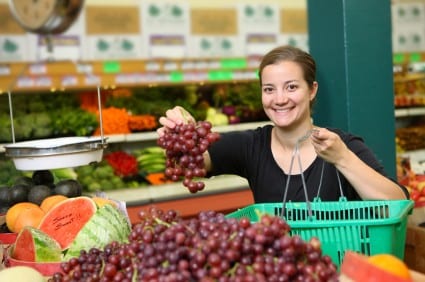Organic foods cost — on average — 20 percent more than their non-organic counterparts. If you are looking to increase the nutritional value of the foods you serve your family and to decrease the chemical additives in the foods your family eats, paying the additional cost for organic foods may be worth it.
Organic foods cost — on average — 20 percent more than their non-organic counterparts. If you are looking to increase the nutritional value of the foods you serve your family and to decrease the chemical additives in the foods your family eats, paying the additional cost for organic foods may be worth it.
Strict Standards
Until 1990, there were no universal standards for organic foods products in the United States. It was then that congress passed the Organic Foods Protection Act (OFPA) which required the U.S. Department of Agriculture (USDA) to develop national, consistent and universal stands for organically produced products. The OFPA and the National Organic Program (NOP), an arm of the USDA, handle the production, handling and labeling of organic foods. As a result of this act, consumers can be assured that foods labeled as "organic" are truly organic. When you buy products that are labeled "organic", it means during the grading, certification and verification process, the food was found to be grown, handled and processed according to the USDA organic standards. To meet these standards, organic dairy products, eggs, poultry and meat must come from animals that were not given any growth hormones or antibiotics, according to the USDA. They must also be made without pesticides, synthetic fertilizers, sewer sludge or ionizing radiation.
Purity
If you prefer to eat foods free from additives, organic food may be a solution. Organic foods do not contain artificial sweeteners, like high-fructose corn syrup, preservatives like sodium nitrate, and flavor enhancers, like monosodium glutamate (MSG). Since organic foods are free from chemical additives, they may lower the incidence of developing diabetes and coronary heart disease, according to OrganicConsumers.org.
Labeling
When you purchase organic foods, the food label clearly indicates how organic the food is. Foods that have 95 percent or more organic ingredients are eligible to carry the USDA organic seal. Foods labeled as "100 percent organic" contain 100 percent organic ingredients. Foods labeled as "organic" contain at least 95 percent organic ingredients, and foods labeled as "made with organic ingredients" have at least 70 percent of their composition coming from organic ingredients, according to The National Organic Program.
Availability
Organic foods are widely available. Meats, vegetables, fruits, poultry and dairy products can be purchased in organic forms. You can purchase organic foods from local farms or in your local grocery store. You can also grow your own organic foods.
When "Organic" Makes No Difference
If your budget is a concern when you are deciding whether to eat organic, the good news is that not everything is worth buying organic. Avocados, sweet corn, pineapple, mango, kiwi, and papaya have thick skins that protect the parts that are normally eaten from pesticides and contaminants.





